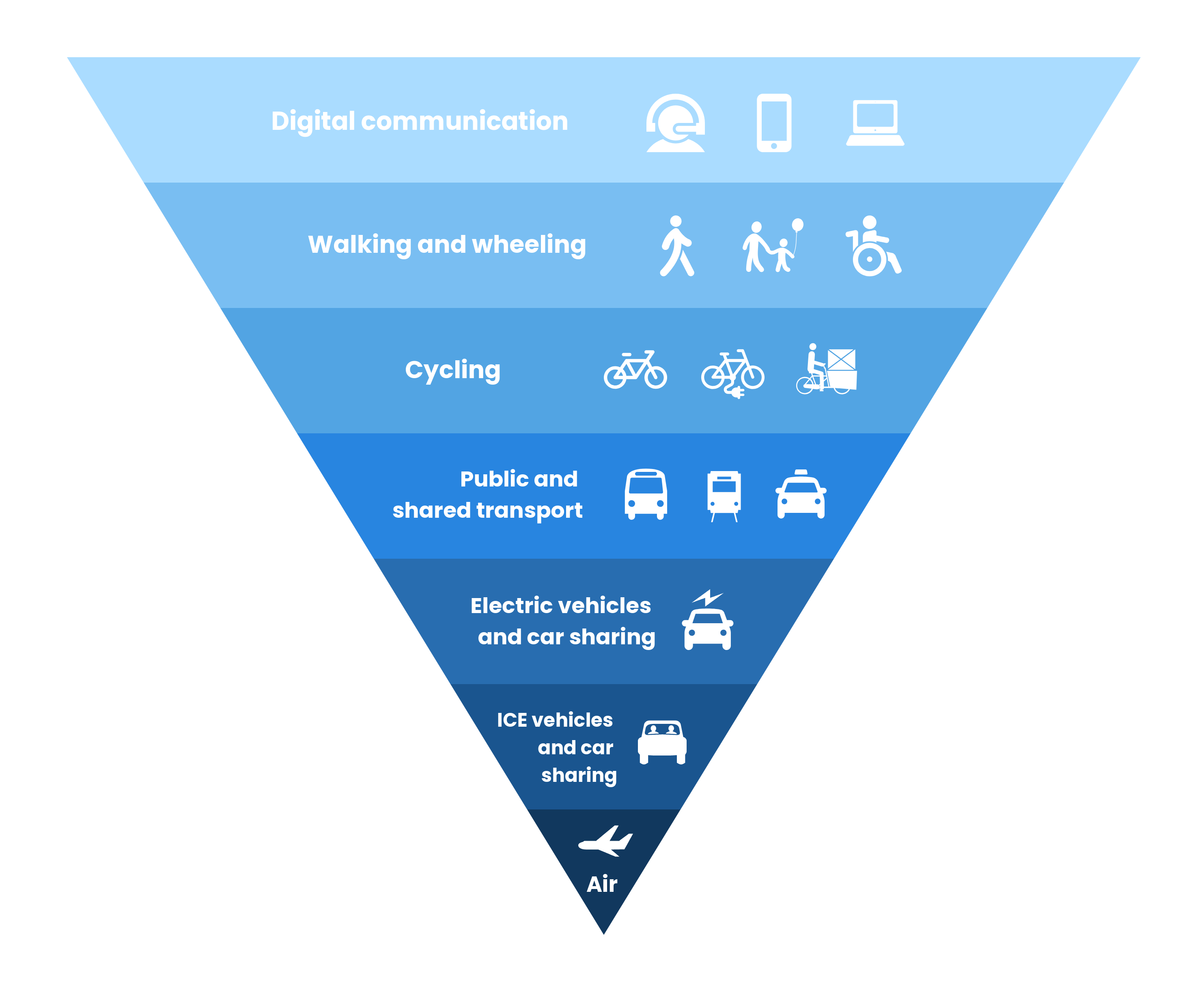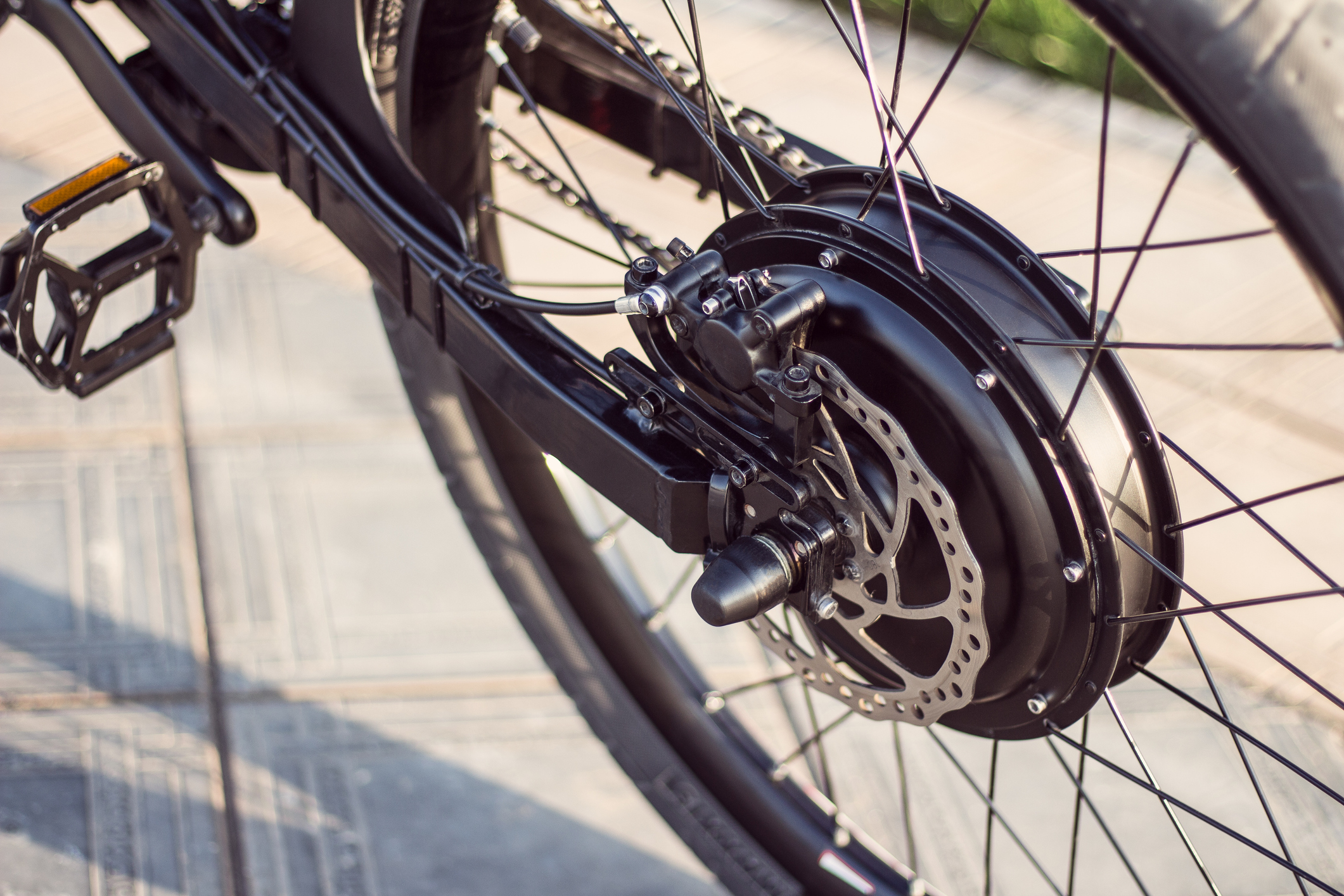- Save money – cars can be expensive; not just to purchase or lease. On average, vehicle tax, maintenance and insurance alone costs £1,100 per year – grab yourself some trainers or a bike and save money!
- Improve your health and happiness – walking regularly can reduce the risk of cardiovascular disease by 35%, while active travel helps manage stress and weight.
- Help the planet and your community – switching from fossil fuelled vehicles to active travel will cut congestion, carbon dioxide (CO2) emissions and other air pollutants that endanger public health and ecosystems.
- Be social – walking is a great option for group journeys when you can walk and chat, while cyclists can find a great sense of community.
- It’s quicker than you think – on average, you can walk a mile in around 15 – 20 minutes or cycle this in five. It could take longer to find your car keys!
Benefits
- get healthier
- reduce your carbon emissions
- save money
Active travel is all about getting you moving from A to B in ways that don’t use fossil fuels. Active travel improves your health and wellbeing, as well as reducing your carbon footprint and saving you money.
The sustainable travel hierarchy is a useful way to think about improving the impact of your journeys. The higher up the hierarchy, the more sustainable and greener the travel option. The most sustainable option is walking where the only resource required is you, followed by cycling which requires some equipment. Along with wheeling (the term used for wheelchair users), these methods of travel are classed as active travel.

Why travel actively?

Walking
Walking or wheeling are great travel options and are also the most accessible – walking costs nothing while wheeling provides more opportunity to access the benefits of active travel.
Small steps make a difference – choosing to walk or wheel just one mile to the shop and back once a week rather than drive will see fuel savings of £19 and 30kg in CO2 annually. Carrying shopping bags home also helps build strength, keeping muscles, bones and joints strong. You won’t need to go to the gym for that workout!
For tips on walking, why not check out these resources?
- Living Streets UK’s 20 tips for walking, also see their ‘Walk to school’ campaign to get the whole family involved
- Ramblers Wellbeing Walks (England only)
- Paths for all (Scotland only)

Get on your bike
Rather than walk, you may prefer cycling for longer distances. There’s a national cycle network, in addition to the many dedicated cycle routes in towns and cities across the UK, so there’s no limit to how far your bike can take you.
- Cycling builds muscle and is linked to improved heart and lung capacity.
- In towns and cities, cycling can save time as you filter through the traffic and avoid the queues.
- The UK government allocated £2 billion towards walking and cycling infrastructure, meaning cycling routes and accessibility are expected to improve.
If you are looking to purchase a bike or cargo bike, why not look in your area for community groups offering reconditioned bikes to save your carbon footprint even further. Alternatively, you may wish to purchase a bike via your employer’s cycle to work scheme.
Cycling UK has lots more cycling tips and advice on its website.
Funding may be available to help you get your neglected bike back on the road. Look at Scotland’s Cycle repair scheme, for example.

Go electric
If you need some assistance with your cycling, why not go electric? Ebikes and ecargo bikes have an electric motor and battery to help you cover longer journeys more easily than on a conventional cycle. Ebikes and ecargo bikes have grown in popularity in recent years, it’s likely you have seen them in your local area and not noticed the difference.
Ebikes and ecargo bikes:
- Are ideal for anyone who might find cycling physically challenging.
- Provide between 25–100 miles of pedalling enhancement on a single charge
- Give you an extra boost to cover those long journeys or big hills
- Emit 80 times less CO2 per mile than the average petrol or diesel car.
Find out more on our electric bikes advice page or explore our information on ecargo bikes.
Supporting longer journeys
There may be instances when active travel isn’t a suitable option, for example you may be travelling a long distance or have a large load.
For these journeys why not consider using a combination of active travel and shared transport?
It all adds up…
- Choosing to commute by walking or cycling once a week could save around 30kg of CO2 a year.
- Reducing your car use by a quarter could save up to £295 in fuel costs and 445kg of CO2 a year.
- At least 150 minutes of moderately intense exercise per week helps reduce your risk of developing a number of mental and physical health conditions: depression by 30%, cardiovascular disease by 35% and type II diabetes by 40% (source: UK Chief Medical Officer’s physical activity guidelines 2019).
- Cycling for 10 miles on an ebike costs as little as 4p in electricity if you charge at home.
- By walking, cycling or wheeling you are reducing congestion and pollution, making local spaces more enjoyable, quieter and healthier.